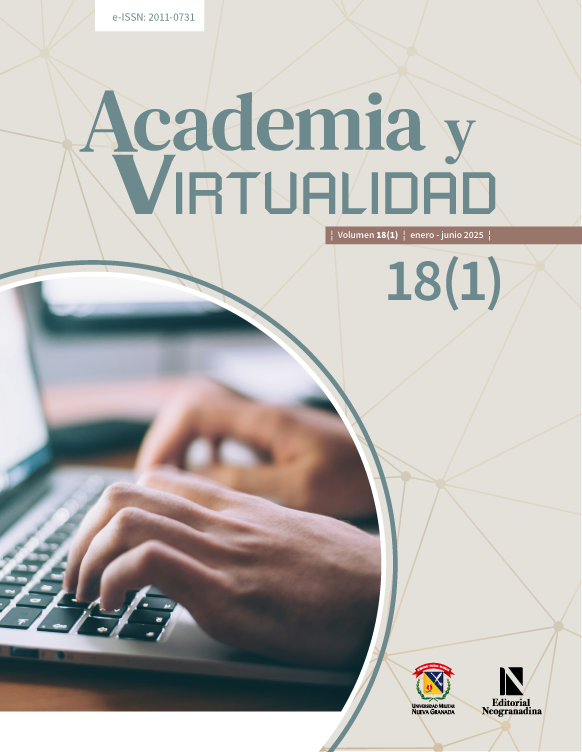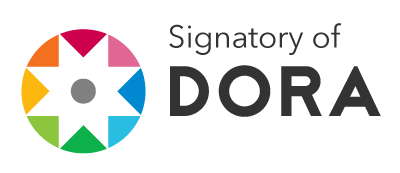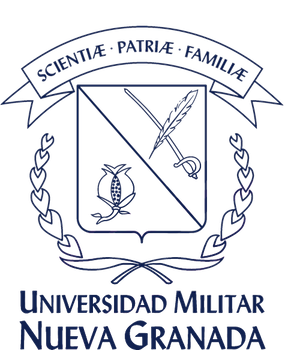Impact of a Virtual Course of English in the Institutional English Courses for Undergraduate Students at Surcolombiana University
Abstract
This research project examines the implementation of a Level One course offered in virtual and hybrid formats for Institutional English Courses (iec) at Universidad Surcolombiana during the second academic term of 2022. Using surveys, interviews, and a digital prototype, the study assesses both student and teacher perceptions of the course, with a focus on the effectiveness of virtual and hybrid learning environments for English language teaching and learning. It also examines teacherstudent communication and the development of language skills within these modalities. The findings reveal that, while the experience successfully motivates students, it also brings to light several challenges, including limitations faced by instructors, insufficient support for e-learning platforms, and diverse student learning styles. Additionally, the study concludes that student frustrations are often more closely related to instructiors’ inflexibility in grading assignments than to the course’s difficulty. Overall, the research underscores the ongoing need for teacher training and support to leverage the flexibility and potential of e learning in higher education English language programs, enabling both educators and students to adapt effectively to these evolving educational environments.
Downloads
References
Adebileje, A. &and Akinola, A. (2020). Teaching and Learning English as a Second Language in Nigeria: Examining Evolving https://doi.org/10.17507/tpls.1009.02
Approaches and Methods. Theory and Practice in Language Studies, 10(9), 1015. DOI: https://doi.org/10.17507/tpls.1009.02
Baresh, E. F., Ali, S. M., &and Darmi, R. (2019). Using Hybrid Problem-based Learning (HPBL) Approach to Enhance Libyan EFL Students' Engagement with English Language. International Journal of Education and Literacy Studies, 7(2), 9. DOI: https://doi.org/10.7575/aiac.ijels.v.7n.2p.9
Bekteshi, E., &and Xhaferi, B. (2020). An Analysis of English for Specific Purposes among University Students. Educational Process: International Journal, 9(2), 90-102. DOI: https://doi.org/10.22521/edupij.2020.92.2
Casasola, C. (2021). Tecnologías para el Aprendizaje y el Conocimiento (TAC). Las verdaderas TIC aplicadas al contexto educativo. Campus Educación Revista Digital Docente, N°22, p. 33-37. Disponible en: https://www.campuseducacion.com/revista-digital-docente/%20numeros/22/
Clark, R. &and Mayer, R. (2008). E-learning and the science of instruction: Proven guidelines for consumers and designers of multimedia learning (2nd ed.). San Francisco, CA: Pfieiffer.
Escobar Fandiño, F. G., &and Silva Velandia, A. J. (2020). How an online tutor motivates E-learning English. Heliyon, 6(8), e04630. DOI: https://doi.org/10.1016/j.heliyon.2020.e04630
Escobar Fandiño, F. G., Muñoz, L. D., &and Silva Velandia, A. J. (2019). Motivation and E-Learning English as a foreign language: A qualitative study. Heliyon, 5(9), e02394. DOI: https://doi.org/10.1016/j.heliyon.2019.e02394
Fiorito, L. (2022, 30 octubre). Teaching English for Specific Purposes (ESP). UsingEnglish.com.
Gamage, A. &and Dehideniya, S. (2022). Online and Hybrid Teaching and Learning: Enhance Effective Student Engagement and Experience. Education Sciences, 12(10), 651. DOI: https://doi.org/10.3390/educsci12100651
Gonzáles, O. &and Fernández, F. (2019). Empowering Student Teachers and In-Service Teachers in the Creation of Open Educational Resources through the DSP-SCORM Package Strategy. ICT experiences in Surcolombiana University: classroom research systematization in initial and teacher training. (pp. 65-79). Editorial Universidad Surcolombiana.
Hall, T. (2020). Bridging Practice and Theory: The Emerging Potential of Design-based Research (DBR) for Digital Innovation in Education. Education Research &and Perspectives, 47(1).
Herrera, L. (2017). Impact of Implementing a Virtual Learning Environment (VLE) in the EFL Classroom. Íkala, Revista De Lenguaje Y Cultura, 22(3), 479-498. https://doi.org/10.17533/udea.ikala.v22n03a07
Jensen, L., Price, L. &and Roxå, T. (2019). Seeing through the eyes of a teacher: differences in perceptions of the teaching in face-to-face and digital contexts. Studies in Higher Education, 45(6), 1149-1159. DOI: https://doi.org/10.1080/03075079.2019.1688280
Kozdras, D., &and Welsh, J. (2018, March). Enter the matrix: a pedagogy for infusing technology. In Society for Information Technology &and Teacher Education International Conference (pp. 536-541). Association for the Advancement of Computing in Education (AACE).
Kumar, R. (2019). Research Methodology: A Step-by-Step Guide for Beginners (5th ed.). SAGE Publications Ltd. Masouleh, N. S., &and Jooneghani, R. B. (2012). Autonomous learning: A teacher-less learning! Procedia - Social and Behavioral Sciences, 55, 835-842. DOI: https://doi.org/10.1016/j.sbspro.2012.09.570
Muliyah, P., &and Aminatun, D. (2020). Teaching English for Specific Purposes in Vocational High School: Teachers, Beliefs and Practices. JET (Journal of English Teaching), 6(2), 122-133.DOI: https://doi.org/10.33541/jet.v6i2.1756
Muzaffarovna, Y. G. (2022, 12 septiembre). Challenges in Teaching English as a Second Language to Adults, Multilingual Settings and Teaching Methods | Eurasian Journal of Learning and Academic Teaching. https://geniusjournals.org/index.php/ejlat/article/view/2149
Nelson, B., &and Kim, Y. (2020). Multimedia design principles in game-based learning. In J. L. Plass, R. E. Mayer, &and B. D. Homer (Eds.), Handbook of game-based learning (pp. 307-327). The MIT Press.
Nesbit, J. C., Belfer, K., &and Leacock, T. (2003). Learning object review instrument (LORI). E-learning research and assessment network, 33-68.
Rao, S. C. V. (2018). ERIC - ED611486 - Blended Learning: A New Hybrid Teaching Methodology, Online Submission, 2019. https://eric.ed.gov/?id=ED611486
Ray, K. (2021, 29 marzo). What is Remote Learning? TechLearningMagazine. https://www.techlearning.com/how-to/what-is-remote-learning
Shariff, S. B. M., &and Shah, P. M. (2019). Pupils Perception of Using YouTube and Autonomous Learning. Creative Education. 10(13), 3509-3520. DOI: https://doi.org/10.4236/ce.2019.1013270
Soler, B., Villacañas, L. S., &and Pich, E. (2013). Creating and implementing a didactic sequence as an educational strategy for foreign language teaching. Ikala, revista de lenguaje y cultura, 18(3), 31-43. DOI: https://doi.org/10.17533/udea.
Van Lieshout, C., &and Cardoso, W. (2022). Google Translate as a tool for self-directed language learning. Language,Learning &and Technology, 26(1), 1-19. http://hdl.handle.net/10125/73460
ViewSonic. (2022, 10 noviembre). What Is Hybrid Learning? ViewSonic Library. https://www.viewsonic.com/library/education/what-is-hybrid-learning/
Widyaningtyas, F., &and Wahidah, F. S. (2022). Analyzing the Students' Motivation towards the Use of ICT in Learning English. Academic Journal Perspective: Education, Language, and Literature, 9(2), 147 DOI:. https://doi.org/10.33603/perspective.v9i2.6307
Yeni, M. (2019). Students' Self-Directed Learning in Listening Class. English Journal of Indragiri, 3(2), 107-115. DOI: https://doi.org/10.32520/eji.v3i2.602
Yulianti, R., Miftakh, F., &and Fitriyana, W. (2021). Undergraduate Students' Perspective on Self-Directed Learning in Speaking Skill. INTERACTION: Jurnal Pendidikan Bahasa, 8(2), 163-173. DOI: https://doi.org/10.36232/jurnalpendidikanbahasa.v8i2.1146
Copyright (c) 2025 Academia y Virtualidad

This work is licensed under a Creative Commons Attribution-NonCommercial-NoDerivatives 4.0 International License.











